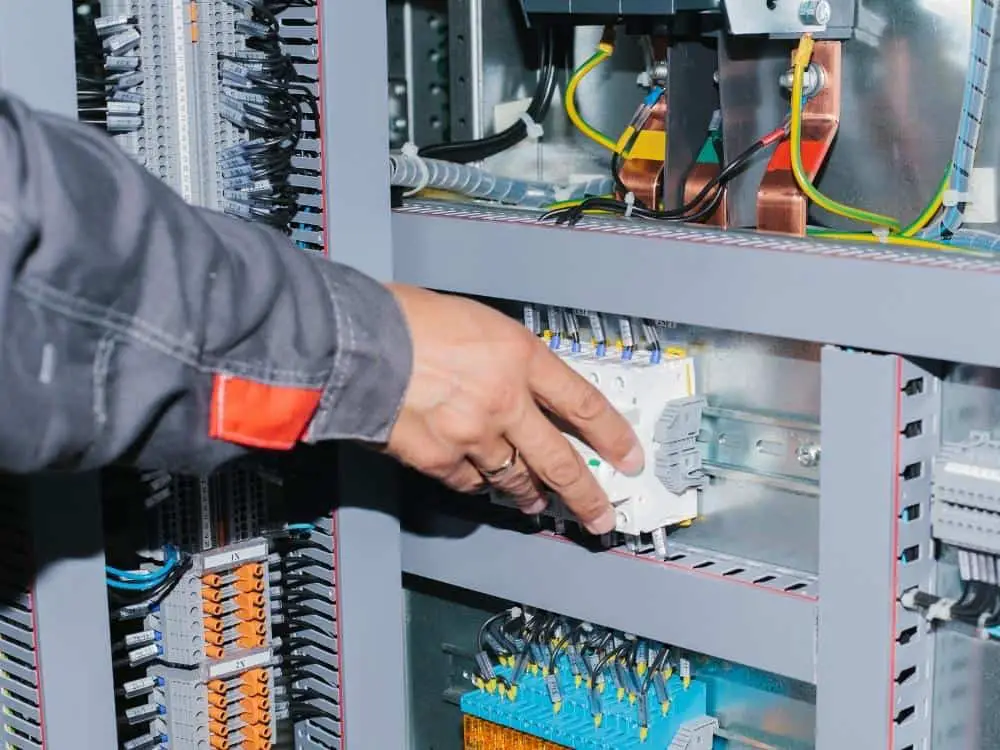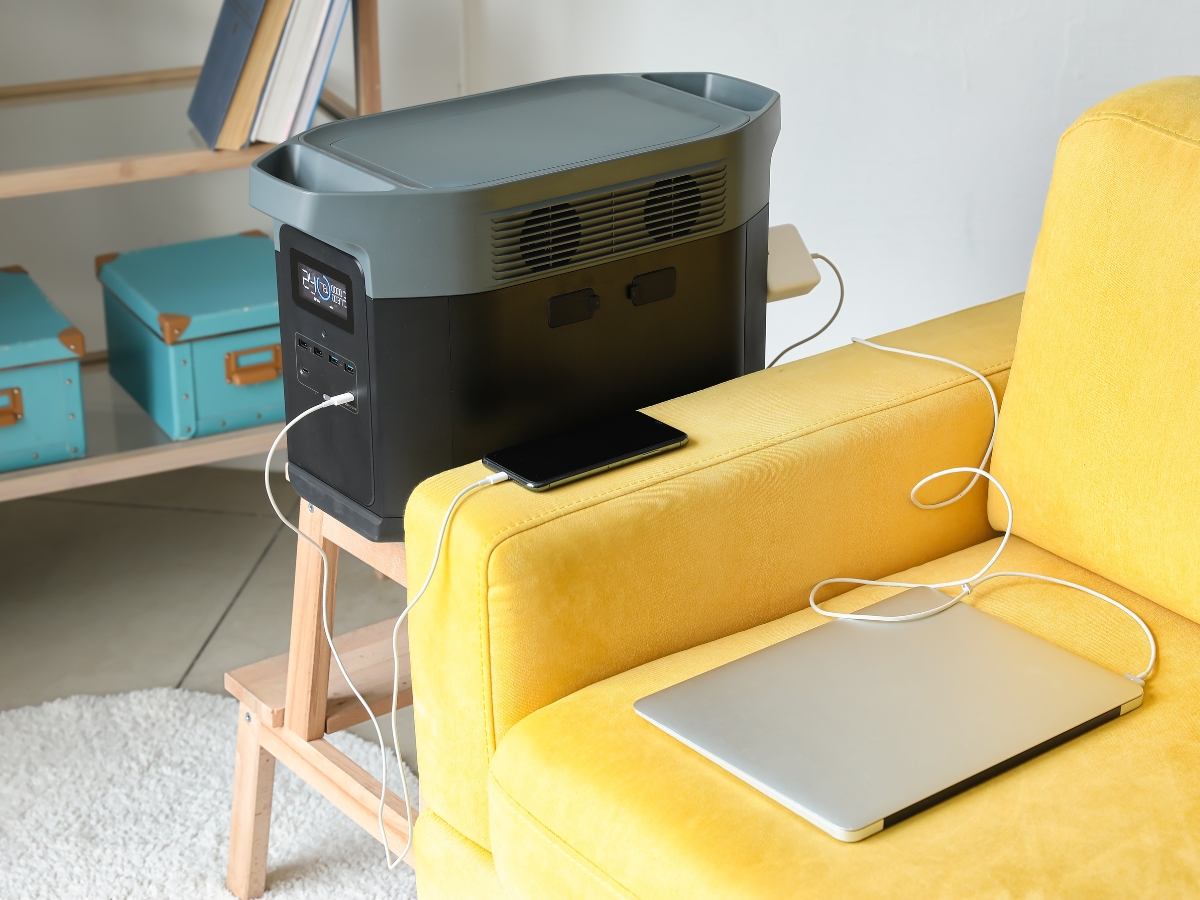Generators are fantastic backup power sources. When you cannot draw power from the grid, a generator can keep your essentials operating until power is restored or even power your entire house.
For all their good, generators are not without their problems. An under-voltage is one of the most common issues experienced by generators. But, what causes a generator to under-voltage?
Under-voltage in generators is easily observed and commonly experienced. Some of the issues relating to a generator under-voltage include:
- How generators work
- Under-voltage and other problems
- Reasons and consequences for generators’ under-voltage
- Preventing under voltages
Generators are practical power plants that come in various sizes for various functions. Although perfect for emergencies, they often experience issues like under-voltages.
These issues are either user or maintenance-related but can often be prevented through careful planning and diligent maintenance if you know what to look for.

What Are The Types Of Generators And How Do They Work?
Generators come in many designs and sizes, depending on the consumer’s needs. A generator’s essence is to turn a fuel source into electricity by creating a current.
There is a plethora of different generators on the market, each designed to fulfill a specific need and purpose. They are often categorized according to specific features.
Some of these generators include:
- Portable generators.
- Inverter generators
- Standby generators
Fuels which generators use include:
- Gasoline
- Diesel
- Natural gas/Propane
- Solar power
- Hydrogen
What Are Some Common Voltage Generator Problems?
Although generators are great in a pinch when you need power either while camping or if the grid goes down (lightening, maintenance, or other issues), they experience several issues, including under or over-voltages, battery failure, and seizing/breaking.
More often than not, a generator experiences any problem due to a lack of maintenance. Generators have a host of parts that wear out if not properly looked after.
Although parts are expected to wear out eventually, by neglecting to service and maintain the generator, this “wearing out” happens much quicker and can have more severe consequences.
A major contributing factor to a generator’s problem is the size of the load. If the load is too large or too small, it could damage the generator.
What Is An Under-voltage?
In general electrical terms, an under-voltage happens when the load (all the appliances that require electricity) requirements exceed the available voltage/wattage, especially when the generator does not operate efficiently.
Under-voltages are, as the name suggests when a generator (or another power source) does not produce enough voltage to meet the needs of the devices (the load) connected to it.
Why Do Generators Have Under-voltages?
When a generator cannot supply the required amount of electricity to the load, there is an under-voltage. This supply shortage is either due to an overload or maintenance issues.
Generators come in a variety of sizes and strengths. Some are designed for small-scale use, while others are intended to power an entire home.
Suppose you connect too many electronic devices or devices that draw a lot of energy (like fridges and freezers) to a generator designed for camping purposes (for example). In that case, you place too high of a strain (demand) on the generator. The generator then produces an under-voltage.
What Are Other Reasons For Under-voltage?
Generators are not limited to under-voltages because of overloading only. Other issues are found within the generator itself and cause the power plant to not work at its maximum efficacy.
Circuit Breakers Which Have Tripped
When a generator operates at an under-voltage, the circuit breaker is the first observation point. When there is a power surge or overload, these units cut the power as a safety feature. In doing so, they switch off and need to be turned on before the generator works again.
Occasionally these breakers fuse and need to be replaced before using the generator.
Bad/Damaged Wiring
If a wire comes loose somewhere, breaks, or wears thin, and no longer operates efficiently, the required amount of voltage may not be supplied to devices.
Broken Capacitors
The capacitors within a generator store electricity.
In a generator, a capacitor works by supplying electricity to the rotor, regulating the voltage. If the capacitor is faulty/broken, the amount of voltage supplied to the load is no longer regulated, potentially leading to over-and under-voltage situations.
A Faulty Alternator
Within a generator, the alternator functions by charging the capacitor. When faulty/not working correctly, there is a drop in the voltage produced because the capacitor is not sufficiently charged.
Shorted/Damaged Or Broken Windings
The windings form part of the coil, which generates electricity through magnetism. When one of these windings is damaged, it creates an open circuit. This open circuit results in a drop of volts produced.
A Defective Automatic Voltage Regulator
An automatic voltage regulator which no longer works properly is another potential cause for under-voltages. Often technology fails, does random things, and loses its settings.
Sometimes, a re-adjustment is needed to make them work efficiently in regulating the amount of voltage output the generator provides.
Other times, the unit may be faulty and needs to be replaced.
Manufacturing Faults Or Settings
Sometimes a generator’s speed is set by using a screw close to the carburetor. By adjusting this screw, a richer oxygen/fuel mixture is produced, which allows (combustion) generators to operate more efficiently by increasing the revolutions per minute (rpm).
By adjusting this setting, the frequency of the generator should also change. The ideal frequency in the USA is 60hz, so anything less than that indicates a problem.
How Do You Determine If A Generator Has An Under-Voltage?
Most generators come equipped with a voltage meter or warning lights, which alert you to an under-or over-voltage issue.
If the warning light is on or the generator indicates that the voltage is too low, disconnect all the devices (the load) and check the readings again. If the problem is fixed, the generator is overloaded; if the problem persists, there is another fault with the generator itself.
If you are not a hands-on, technical type of person, taking the generator to someone with the tools and experience at this point is recommended.
What Are The Consequences Of A Generator Under-voltage?
When a generator (or any power source) does not produce enough voltage, the devices connected are at risk of breaking, especially sensitive electronics, like computers and medical devices.
When operating while in an under-voltage state could also damage the generator. The generator attempts to produce the required wattage/volts, so its components work overtime to meet the need.
This situation puts additional wear and tear on the components, which could either break outright or reduce their functional period so that they need to be replaced sooner.
How Do You Prevent A Generator From Under-voltage?
Preventing a crisis from occurring is far more beneficial than fixing the crisis. By ensuring your generator is sufficient and suitable for the load on it and regular maintenance, you will prevent your generator from under-voltage and other prospective issues.
When purchasing a generator, you should ensure that the wattage supplied is enough for the need. If, for example, you require 1800 watts of energy, rather select a generator that produces 2000 or 2500 watts of power. This “wiggle room” will cater to any fluctuations in electricity generation.
When in use, the generator should operate at least 35% of its full capacity to prevent underloading and subsequent issues.
Maintenance includes:
- Checking filters and oil.
- Check the spark plugs.
- Look for any visible damages and breakages, especially wires and fuel lines.
- If you don’t often use your generator, it is recommended to start it up once in a while and allow it to run for a few minutes.
- Make sure you store the generator in a safe place out of the weather and dust.
If you take care of your generator, it will look after you. Like with a car, maintenance is paramount to the effective and efficient operation of a generator.




